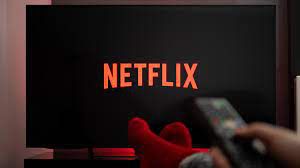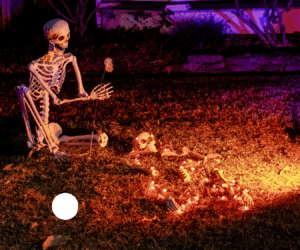
This week, a resurfaced clip from the animated series Dead End: Paranormal Park reignited controversy around representation in children’s programming, leading to high-profile voices, including Elon Musk, calling for a boycott.
The fallout reveals the tensions around LGBTQ+ visibility in media, and the deeper anxieties about who gets to shape children’s understanding of identity today.
How The Show Sparked a New Firestorm
The spark came from an old show. Dead End: Paranormal Park, created by British animator Hamish Steele, premiered on Netflix in 2022.
The series follows Barney Guttman, a teenage transgender boy who takes a job at a haunted theme park and teams up with friends, human and supernatural, to battle demons.
The show was pitched as a quirky fantasy adventure with heartfelt themes of belonging, difference, and family. However, after its cancellation in 2023, a short clip resurfaced online in which Barney explicitly states that he is transgender.
Though it originally drew little mainstream attention, in September 2025, the snippet became viral fuel. The controversy escalated after Steele allegedly mocked the death of conservative activist Charlie Kirk in a social media post.
That post, paired with the resurfaced clip, made Dead End an easy target for critics who have long accused Netflix of smuggling ideology into children’s programming.
Cancel Netflix. pic.twitter.com/JSWNdzWA6d
— Ian Miles Cheong (@stillgray) October 2, 2025
Then Came Elon Musk
Elon Musk’s intervention supercharged the debate. On October 1, he reposted a clip from the show alongside the words: “Cancel Netflix for the health of your kids.”
Almost instantly, the message spread like wildfire across X (formerly Twitter), with conservative commentators and parents’ groups echoing the call.
READ THIS: The 10 Housemates Who Are Carrying BBNaija 10/10 On Their Backs
Cancel Netflix for the health of your kids https://t.co/uPcGiURaCp
— Elon Musk (@elonmusk) October 1, 2025
The timing coincided with a nearly 2% dip in Netflix’s stock price the following morning. While financial analysts stopped short of attributing the slide solely to the controversy, Musk’s cultural influence is undeniable.
When the richest man in the world links a company to what he frames as child endangerment, markets tend to shudder.
ALSO READ: ‘Ebun’: A film telling deaf stories in a hearing world
— Elon Musk (@elonmusk) October 2, 2025
What Critics Are Saying
Critics argue that the problem is not simply representation, but the age of the target audience. Dead End was rated for viewers as young as seven. For many parents, that crosses a boundary.
Conservative commentator Ian Miles Cheong, a longtime critic of gender ideology in children’s spaces, put it this way:
“Kids don’t understand gender. Netflix knows it and pushes it anyway. That isn’t harmless storytelling. It’s an agenda wired into children’s shows.”
Others echoed similar sentiments, suggesting that the inclusion of trans identity in a show marketed for children amounted to social engineering.
READ THIS: Josh Olaoluwa Is Making African Films Everyone Will Talk About
Kids don’t understand gender. Netflix knows it and pushes it anyway. That isn’t harmless storytelling. It’s an agenda wired into children’s shows.
Dead End: Paranormal Park is the example. Marketed to kids as young as seven, it centers on a gay transgender boy who pals around… pic.twitter.com/yMdVPcpPm3— Ian Miles Cheong (@stillgray) October 1, 2025
For these critics, children are not equipped to process such topics, and introducing them through entertainment risks confusing them at best and indoctrinating them at worst.
On the far end of the spectrum, some voices described children’s media featuring LGBTQ+ characters as reprogramming or indoctrination. A viral post framed it in even starker terms:
“Seven-year-olds aren’t asking for this. They’re being offered a new identity before they know what a boundary is.”
They aren’t selling a show.
They’re selling a fracture.
It’s not representation.
It’s reprogramming before memory can anchor.
Seven-year-olds aren’t asking for this.
They’re being offered a new identity
before they know what a boundary is.
This isn’t inclusion.
It’s…— Delete Your Handler (@thebeaconsignal) September 29, 2025
The Other Side of the Debate
Supporters of shows like Dead End argue that representation matters, even in children’s programming.
For trans youth, seeing themselves reflected on screen can be validating, especially in a society where their identities are often misunderstood or marginalised.
Advocates contend that shielding children entirely from the realities of difference only reinforces stigma, leaving them ill-prepared for a diverse world.








